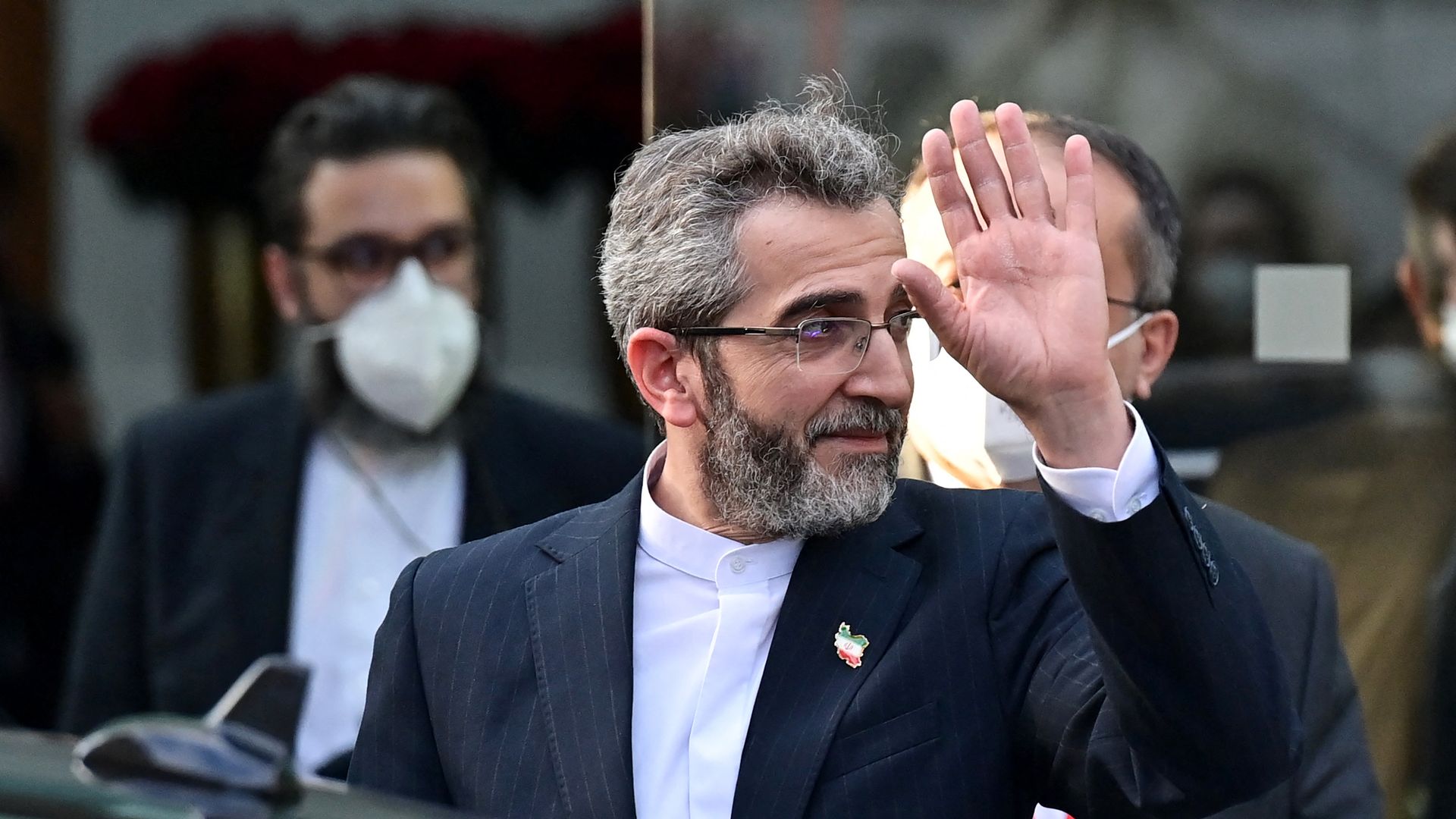Iran nuclear talks enter now-or-never phase
Add Axios as your preferred source to
see more of our stories on Google.

Iranian negotiator Ali Bagheri Kani leaves the last round of talks. Photo: Joe Klamar/AFP via Getty
If the new round of nuclear talks beginning Thursday in Vienna fails to yield progress, the U.S. and its European allies are likely to take steps to increase the pressure on Iran.
State of play: The U.S. and the E3 — France, Germany and the U.K. — accused Iran of taking maximalist positions and failing to negotiate seriously in the last round, which ended on Friday.
- U.S. and European diplomats say Iran has backtracked on certain commitments to roll back its nuclear program made by the previous Iranian government, while increasing its demands on sanctions relief.
- U.S. officials have warned that if Iran continues down this path, a return to the 2015 nuclear deal might not be viable in the near future.
The other side: The Iranians have rejected Western criticism and claimed they're showing pragmatism.
- Iranian Foreign Minister Hossein Amir-Abdollahian said Monday that all of Iran's proposals fell within the framework of the 2015 deal and were based on the draft agreement reached in June with the previous Iranian government.
- He stressed that Iran had expected the E3 to present initiatives for lifting sanctions last week, which didn’t happen.
Driving the news: This is the eighth round of talks this year, and the second since President Ebrahim Raisi's hardline administration took office in Tehran.
- U.S. Iran envoy Rob Malley and his team are expected to arrive in Vienna on Thursday and continue to negotiate indirectly through European mediators.
- On Tuesday, the U.S. Treasury announced new sanctions against several Iranian officials for their roles in cracking down on protestors.
- Iran’s Foreign Ministry spokesperson Saeed Khatibzadeh tweeted in response: "Doubling down on sanctions won't create leverage — and is anything but seriousness and goodwill."
Behind the scenes: European diplomats say an Axios report that Israeli intelligence suggests Iran may be preparing to enrich weapons-grade uranium was discussed in Vienna. EU foreign policy chief Josep Borrell also raised the report in a call with Amir-Abdollahian, who denied it.
- "I frankly told him that this is just an attempt to create media buzz," Amir-Abdollahian said on Monday. "The Islamic Republic continues its enrichment at the level of 20%, and we do not confirm the reports about 90% enrichment. They are total lies."
What’s next: If the new round of talks fails, the U.S. and E3 are likely to convene an emergency session of the International Atomic Energy Agency board by the end of December to pass a censure resolution against Iran, U.S. officials say.
- Next steps could include more sanctions against Iran and even the initiation of snapback sanctions at the UN Security Council. The U.K. would support such an approach, E3 diplomats say.
